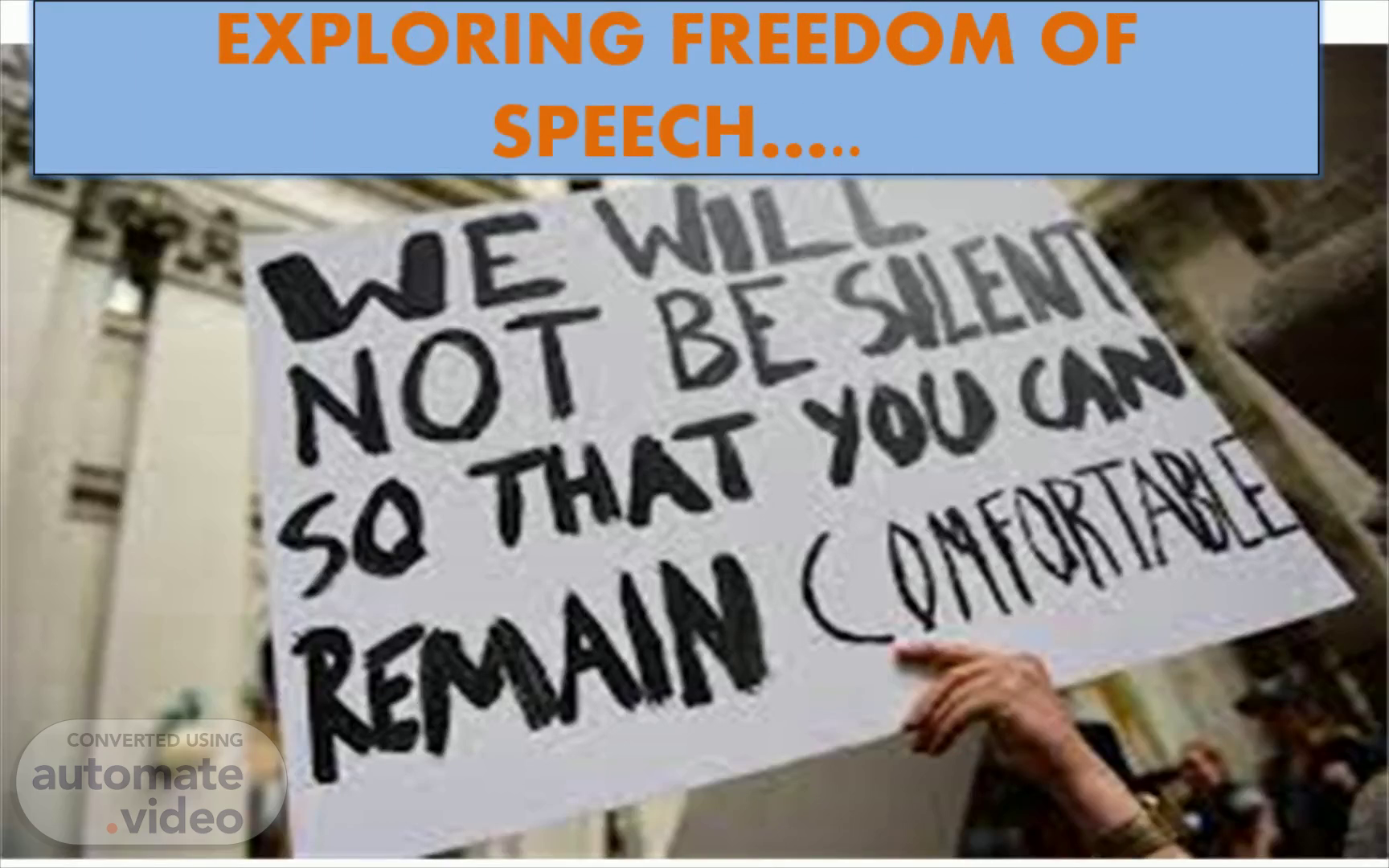
Page 1 (0s)
EXPLORING FREEDOM OF SPEECH…...
Page 3 (1m 13s)
HISTORY BEHIND FREEDOM OF SPEECH. The concept of freedom of speech originated long back. England’s Bill of Rights 1689 adopted freedom of speech as a constitutional right and still in effect . The French Revolution in 1789 adopted the Declaration of Rights of Man and of Citizen. This further affirmed the Freedom of Speech as an undeniable right . The Declaration of Freedom of Speech in Article 11 states: “The free communication of ideas and opinions is one of the most precious of the right of man. Every citizen may, accordingly, speak, write and print with freedom, but shall be responsible for such abuses of this freedom as shall be defined by law”..
Page 4 (1m 55s)
FREEDOM OF SPEECH IN INDIAN CONSTITUTION. The Article 19(1) (a) of the Constitution of India states that, “all citizens shall have the right to freedom of speech and expression ”. The Freedom of Speech and Expression is a fundamental right guaranteed to all citizens under the Constitution of India. However, the Constitution does not guarantee an absolute individual right to freedom of expression ..
Page 5 (2m 38s)
Article 19(2) states that the government may impose reasonable restrictions upon the freedom of speech and expression in the interest of the following factors; Sovereignty and integrity of India The security of the State, Friendly relations with foreign States, Public order, Decency or morality or in relation to contempt of court Defamation Incitement to an offence.
Page 6 (3m 21s)
COUNTRIES WHICH HAVE COMPLETE/PARTIAL CENSORSHIP FREEDOM OF SPEECH & PRESS.
Page 7 (4m 20s)
Why did Alibaba's Jack Ma disappear for three months? By Sam Peach BBC Radio Documentaries unit.
Page 8 (4m 42s)
2.Russia. The Russian constitution provides for freedom of speech and press however , government application of law, bureaucratic regulation, and politically motivated criminal investigations have forced the press to exercise self-censorship constraining its coverage of certain controversial issues, resulting in infringements of these rights. The dangers to journalists in Russia have been well known since the early 1990s but concern at the number of unsolved killings soared after Anna Politkovskaya's murder in Moscow on 7 October 2006. The Amnesty International reported in 2009, that "Human rights defenders, journalists and lawyers who spoke openly about human rights abuses faced threats and intimidation. The police appeared to be reluctant to investigate such threats and a climate of impunity for attacks on civil society activists prevailed." Amnesty International reported also a "climate of growing intolerance towards independent views"..
Page 9 (5m 41s)
The Week Kremlin opposer Alexei Navalny's anti-corruption agency releases images of Putin's mansion The trove ot nearly 500 photos ot 'Putin's palace,' published by Alexei Navalny's Anti-Corruption Fund, show the palatial mansion on... 4 weeks ago.